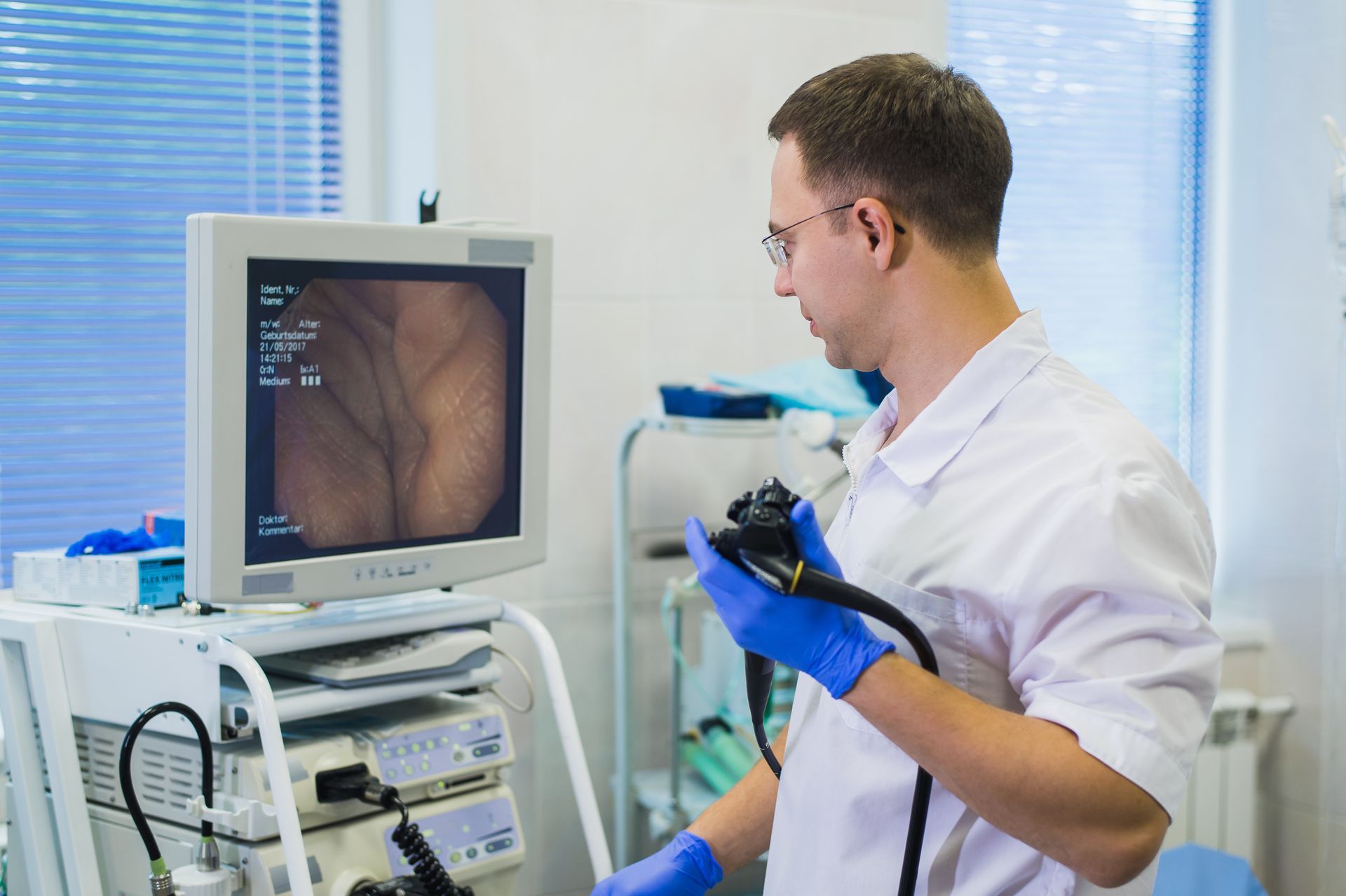Detecting and Addressing Polyps for Colon Health
A colonoscopy is a vital screening procedure recommended for individuals above a certain age or with specific risk factors for colorectal cancer. One of the key objectives of a colonoscopy is to detect and address polyps—abnormal growths in the lining of the colon or rectum. The significance of detecting polyps during a colonoscopy, the implications of finding them, and the importance of follow-up care are critical in preventing colon cancer and maintaining digestive health.
Detecting Polyps with a Colonoscopy
A small, flexible tube called a colonoscope—which has a camera—is directed through the colon and placed into the rectum during a colonoscopy. A gastroenterologist can use the camera to look for any anomalies, such as polyps, on the lining of the colon. Polyps can range in size from little, flat lesions to bigger, mushroom-like growths. They can also vary in shape and appearance. During the procedure, the gastroenterologist thoroughly examines the colon, noting and recording any polyps that are found.
What are the Implications of Finding Polyps During a Colonoscopy?
Polyps found during a colonoscopy are important because they can affect a patient's colorectal health. While the majority of polyps are benign (not malignant), some may eventually progress to colorectal cancer if left untreated. Eliminating polyps during the colonoscopy can lower the likelihood of difficulties in the future and help stop colorectal cancer from progressing.
Follow-up Care and Management After Finding Polyps in the Colon
Your gastroenterologist may carry out a polypectomy, a removal of the polyps from the colon lining if polyps are found during a colonoscopy. Typically, the colonoscope is used to pass specialized instruments during polypectomy procedures. The type, size, and likelihood of malignancy of the excised polyps are subsequently determined by sending them to a laboratory for additional analysis. Your doctor will advise you on appropriate follow-up treatment.
Importance of Regular Colon Cancer Screenings
A regular colonoscopy screening is necessary to identify and remove polyps early, which lowers the risk of colorectal cancer. A colonoscopy screening is generally advocated for people at average risk beginning at age 45 and repeated annually, or as directed by a healthcare professional. However, earlier or more regular screening may be necessary for people with other risk factors, such as a family history of colorectal cancer.
A colonoscopy is a valuable tool for detecting and addressing polyps in the colon, contributing to the prevention and early detection of colorectal cancer. Finding and removing polyps during a colonoscopy can help reduce the risk of cancer development and improve overall colorectal health. If you are over the age of 45 or have a family history of colorectal cancer you should schedule a colonoscopy with a gastroenterologist. The expert team of nurses and doctors at Digestive Diseases Center in Northwest Florida are here to help with all of your digestive health needs.
CONTACT
850-763-5409
ADDRESSES
4 LOCATIONS
204 E 19th Street, B, Panama City
12216 Panama City Beach Pkwy, D, Panama City Beach
4295 3rd Ave, Marianna
101 Good Morning St., 109B, Port St. Joe
Subscribe to our newsletter:
subscribe to our newsletter
We will get back to you as soon as possible.
Please try again later.



